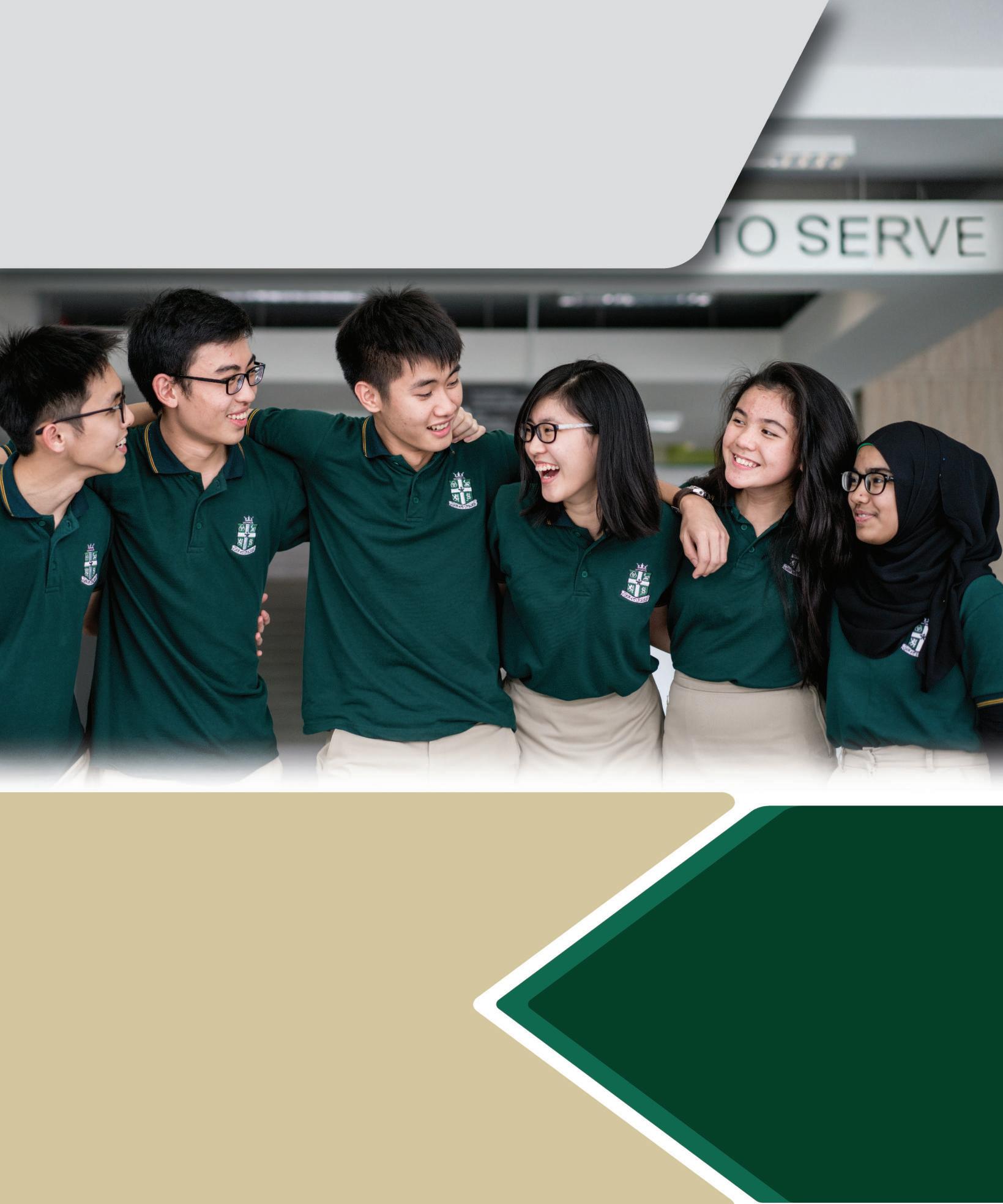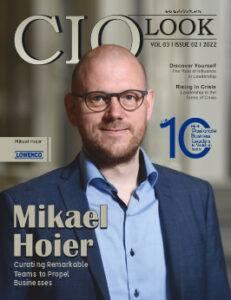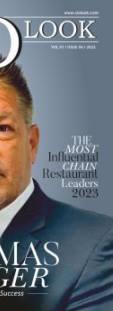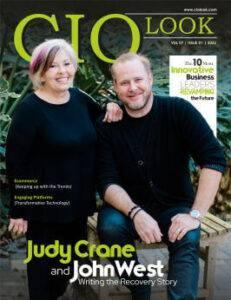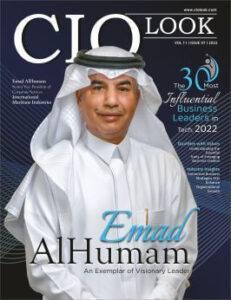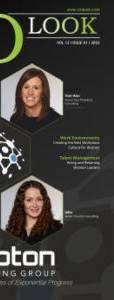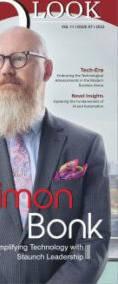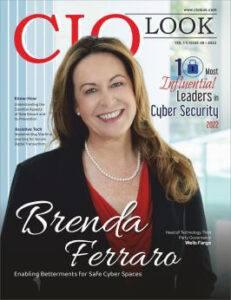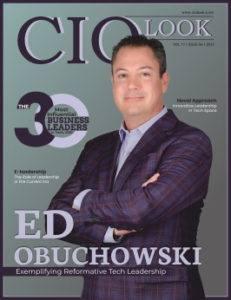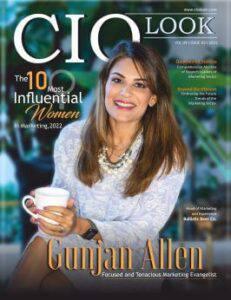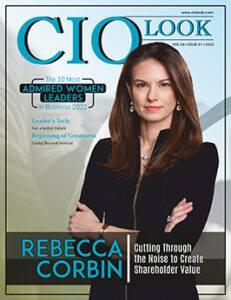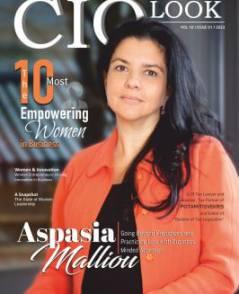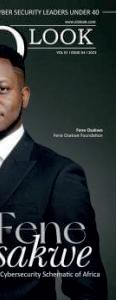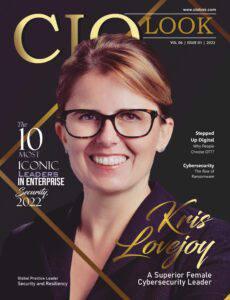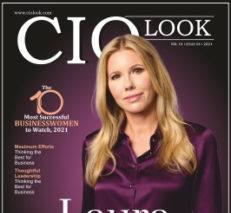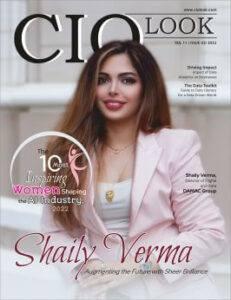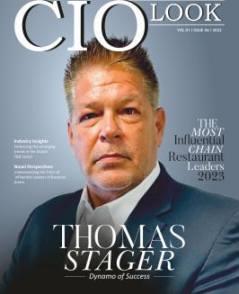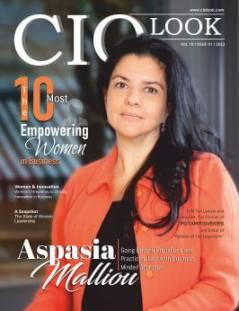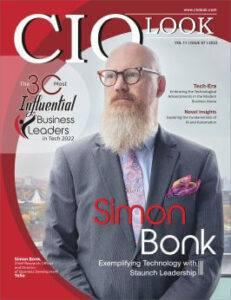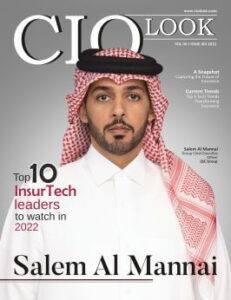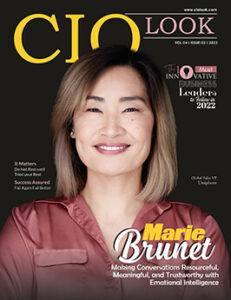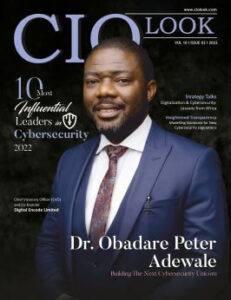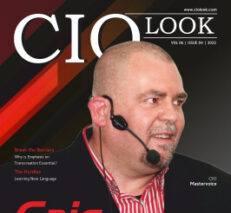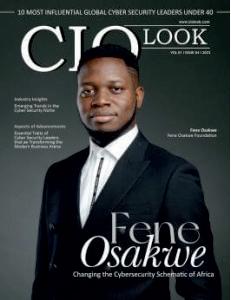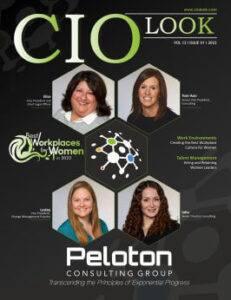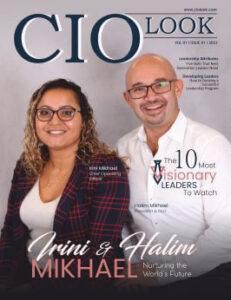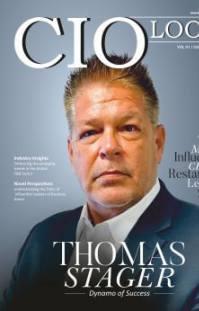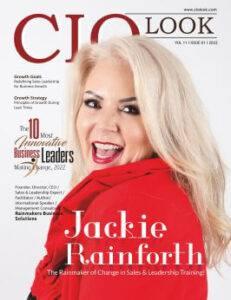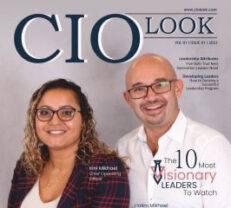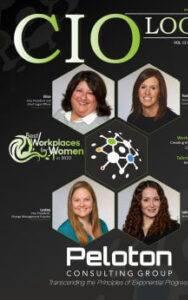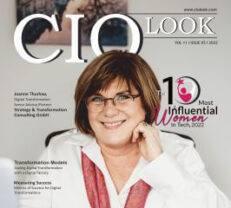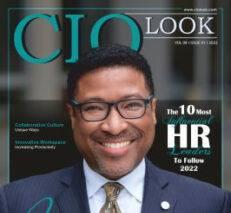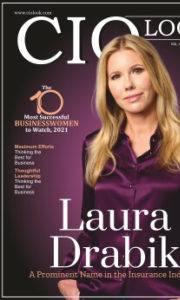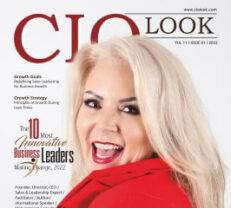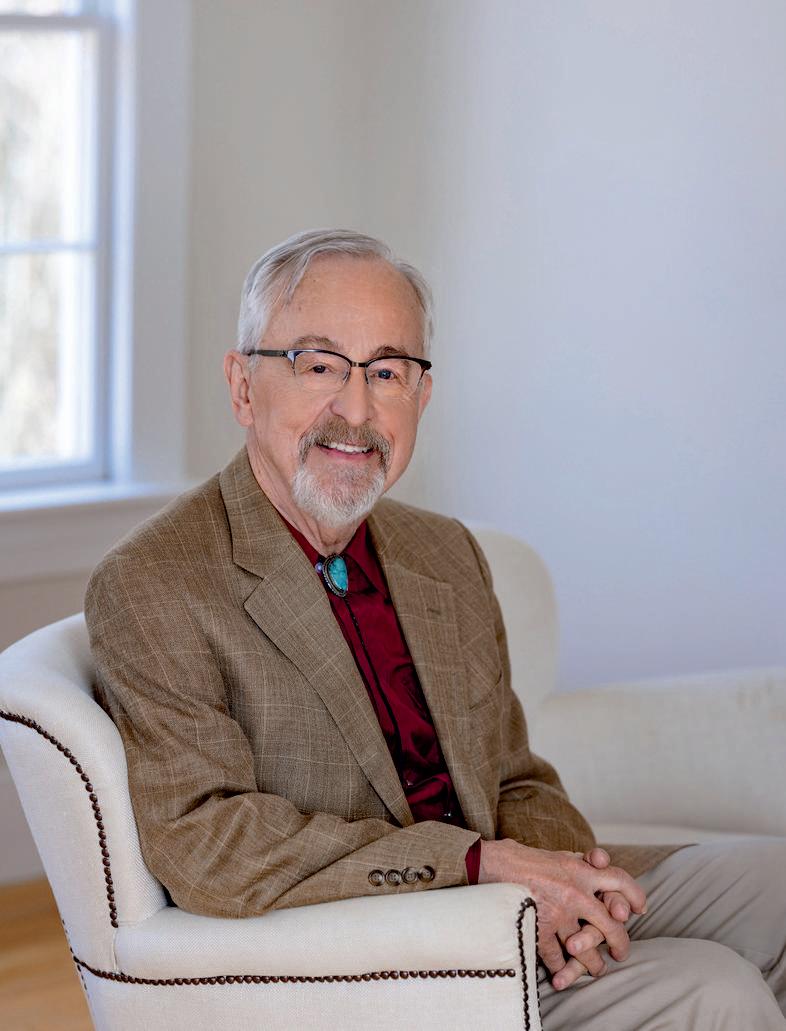

Headlines.
Showcasing Advisory Impact
Gaining Unmatched Exposure

Establishing as Industry Authority
Featuring on International platform


Editor's Note
Visionary Educator Transforming Theory into Impact
Visionary educators drive transformative change across both educational settings and society as a whole. They move beyond conventional teaching, leveraging insight, innovation, and steadfast dedication to inspirestudents,institutions,andcommunitiesalike.Where others see limitations, they recognize potential, viewing education as a powerful means of personal growth, social progress, and global advancement. Their influence reaches far beyond the classroom. Through research, mentorship, publicservice,andthoughtleadership,theseeducatorshelp shapeafutureinwhichthenextgenerationcanthriveamid growing complexity They remind us that education is not solely about transmitting knowledge, but about fostering curiosity,criticalthinking,andacommitmenttoimproving thehumanexperience.Dr.RichardLarsonexemplifiesthis kind of leadership. Through his lifelong contributions to operations research and education, he has positively impactedcountlesslivesandcontinuestoserveasamodelof whatvisionaryeducationcanachieve.
CIO Look in its recent edition titled The Educator’s Legacy: U.S. Family Leaders Redefining 2025, features the career of Dr. Richard Larson. Over the course of a distinguished five-decade career, Dr. Larson has transformedtheoreticalmathematicsintopracticalsolutions thataddresscriticalchallengesinurbansystems,education, and decision-making. Widely recognized as a pioneer in operations research, his contributions—most notably the development of the Hypercube Queuing Model for

emergency response—have significantly influenced how cities manage and deliver essential public services. At the Massachusetts Institute of Technology, he has established himself as both a prolific scholar and a visionary educator whoconsistentlyunderscoresthereal-worldapplicabilityof mathematics. Dr. Larson also co-founded MIT BLOSSOMS, a global STEM education initiative committed to expanding equitable access to high-quality learningresources.
Hisleadershipwithinprofessionalorganizationssuchasthe Operations Research Society of America (ORSA) and the Institute for Operations Research and the Management Sciences (INFORMS) has further advanced the discipline with an emphasis on ethics, practical application, and interdisciplinary collaboration. Even in retirement, Dr. Larson remains actively engaged in mentoring, publishing, andpromotingmodel-basedthinking,mostrecentlythrough his book Model Thinking for Everyday Life. His career reflects a deep commitment to using logic and structured reasoningtoempowerindividualsandimprovesociety.
Haveagreatreadahead!
PrinceBolton
C O N T E N T S
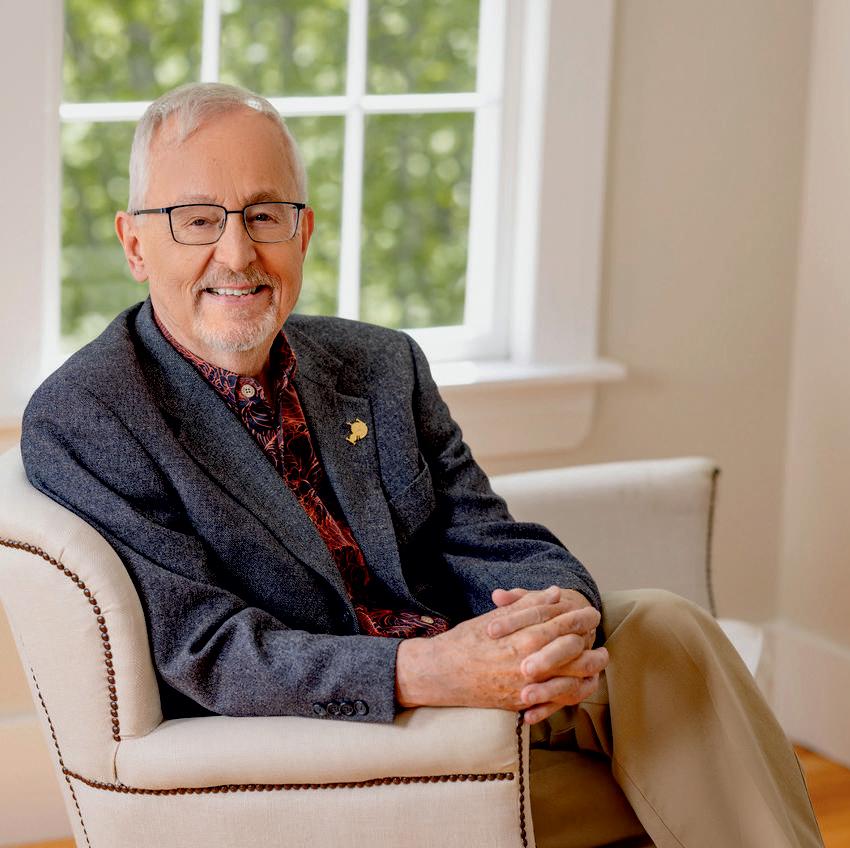

I n d u s t r y I n s i g h t s
Evolving Ideas
How to Become an Emerging Academic Visionary?
Shaping Minds The Impact of Influen�al Educators in America
PoojaMBansal
Editor-in-Chief
CONTENT
Deputy Editor Anish Miller
Managing Editor Prince Bolton
DESIGN
Visualizer Dave Bates
Art & Design Director Davis Mar�n
Associate Designer Jameson Carl
SALES
Senior Sales Manager Wilson T., Hunter D.
Customer Success Manager Collins J.
Sales Execu�ves Tim, Smith
TECHNICAL
Technical Head Peter Hayden
Technical Consultant Victor Collins
SME-SMO
Research Analyst Eric Smith
SEO Execu�ve Alen Spencer

FOLLOWUSON www facebook.com/ciolookmedia

www.twi�er.com/ciolookmedia
WE ARE ALSO AVAILABLE ON
CONTACTUSON
Email info@ciolook com For Subscrip�on www.ciolookmedia.com
Copyright © 2025 CIOLOOK Media, All rights reserved. The content and images used in this magazine should not be reproduced or transmi�ed in any form or by any means, electronic, mechanical, photocopying, recording or otherwise, without prior permission from CIOLOOK Media. Reprint rights remain solely with CIOLOOK Media.
sales@ciolookmedia.com
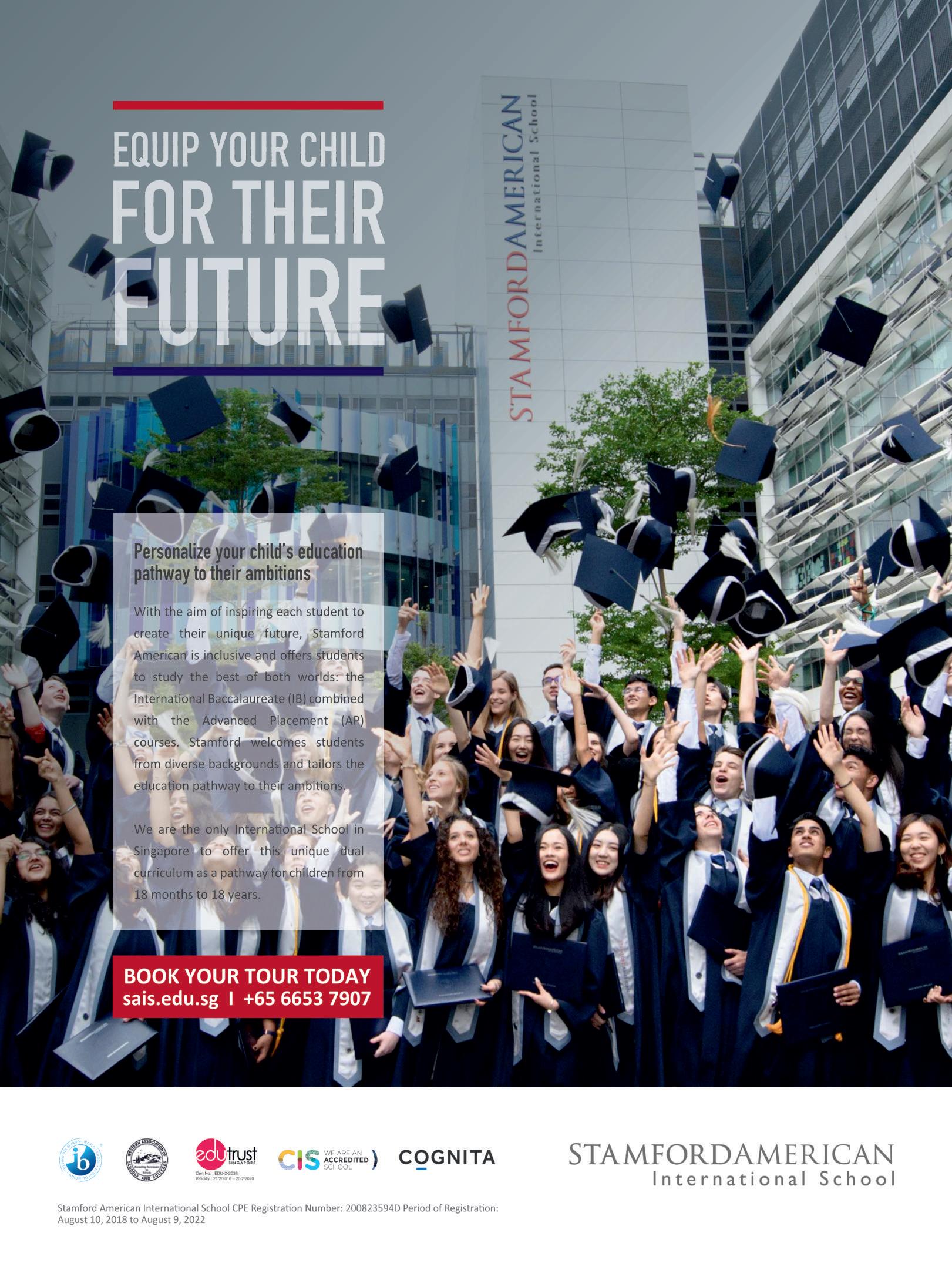


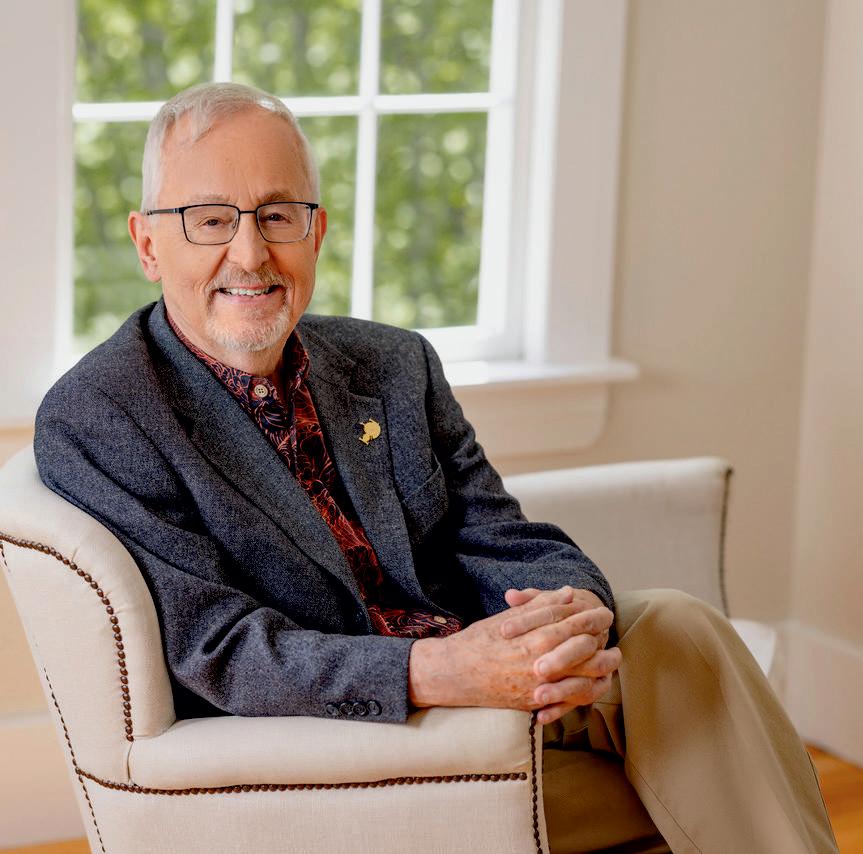

The Signature Story

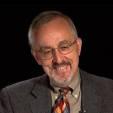
“In every chapter of his life—from professor to innovator, from consultant to author—Dr. Richard Larson has remained steadfast in one belief: that the tools of logic and mathematics can be used to make life better.”

Few individuals have managed to blend academia, public service, and real-world application with the levelofimpactthatDr.RichardLarsonhasachieved over his five-decade career Renowned in the realm of operations research, Dr Larson has spent a lifetime transforming the abstract world of mathematics into meaningful solutions that shape urban systems, educational access, and daily decision-making. From the hallowed halls of MIT to local fire stations and classrooms worldwide, his innovationsechofarbeyondtheblackboard.
This is not merely the story of a mathematician or a professor—itisthejourneyofavisionarywhobelievedinthe powerofmodelsnotjusttoexplaintheworld,buttoimprove it Whether through life-saving emergency response frameworks or empowering educational platforms, Dr. Larson has consistently anchored his work in the service of others.Evenafterretirement,hismissioncontinues—tohelp individualsandinstitutionsthinkbetter,actsmarter,andlive moreefficientlythroughmodel-basedreasoning.
Dr Larson’s story is one of invitation and inspiration—of beinginvitedintogreatnessandtheninvitingothersalongfor thejourney.Throughthoughtfulmentorship,lifelonginquiry, and an unwavering belief in the practical power of mathematics, he has helped countless people from governmentleaderstoschoolchildren—seetheworldnotjust asitis,butasitcouldbe.
EarlyInspirationandLifelongDedication
Dr. Richard Larson often reflects on the formative moment when ProfessorAl Drake extended an invitation that would chart the course of his career. That moment led him to the Massachusetts Institute of Technology in 1969, a place he wouldcallhisintellectualhomeformorethan50years.Itwas here that he developed his philosophy of connecting theoretical mathematics with everyday applications. The invitationwasn’tjusttoMIT—itwasaninvitationtopurpose.
Asaprofessor,Dr.Larsondidnotconfinehimselftotheory. He challenged the traditional boundaries of academia by asking, “How can this knowledge improve people’s lives?” Hisrolewasasmuchabouteducatingthenextgenerationasit was about building better systems For more than five decades, his work explored the intersection of mathematics, public policy, and human well-being, turning concepts into action.
Dr Larson's intellectual curiosity, rooted in real-world impact,helpeddefineaneraofoperationsresearch.Whether

“Dr. Larson sees retirement not as stepping back, but as an opportunity to give back in new ways. His ongoing mission is to make model-based thinking an integral part of how society functions—at every level.”
it was in classrooms, control centers, or city halls, his fingerprints are on solutions that continue to affect society’s most pressing issues. He didn’t just teach theory he transformedhowitwasapplied,taught,andvalued.
SolvingUrbanChallengesThroughMathematics
OneofthehallmarksofDr Larson’scareeristheHypercube Queuing Model, a mathematical framework that redefined how emergency services are dispatched in urban areas.This innovation was not born out of a need to publish papers—it was driven by a desire to save lives. The model uses probability, geometry, and data science to determine the optimal location and deployment of emergency vehicles, minimizingresponsetimeandmaximizingefficiency
Dr.
consultancy—known over time as ENFORTH Corporation and later Q.E.D.—to take these innovations beyond the academic setting. The company specialized in bridging the gap between cutting-edge research and everyday implementation. It was an expression of Dr Larson’s core belief:thatresearchshouldnotsitidleinjournals,butrather liveactivelyinthesolutionsoftherealworld.
The Hypercube model has since been adopted across major citiestomanageambulance,police,andfiredispatchsystems. Dr.Larsondidn’tjusttheorizeaboutoptimization—hemade sureitwasapplied.Today,countlessliveshavebeenimpacted by these intelligent systems, each one a testament to what happenswhensciencemeetsservice.


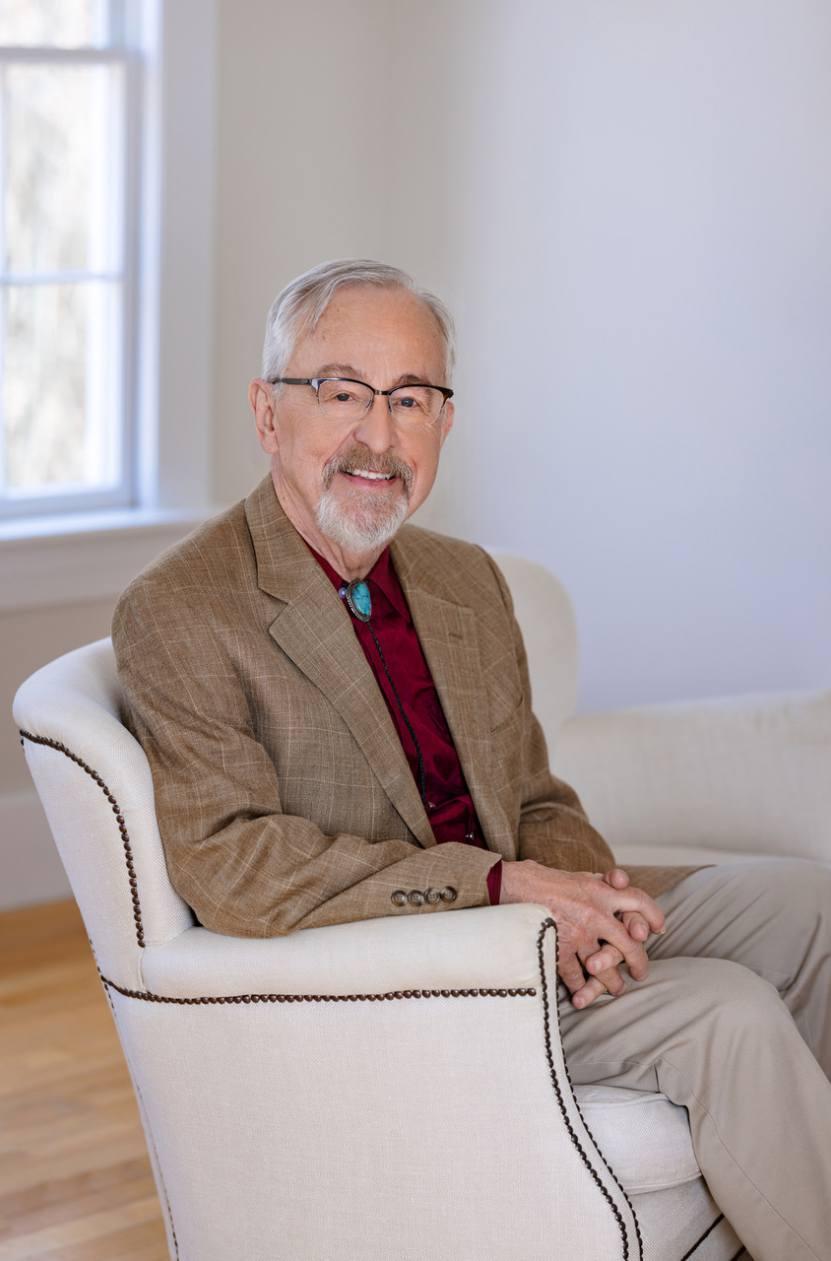

T r a n s f o r m i n g
Education with Global Reach
Education, for Dr Larson, is not about information it’s about accessibility His pioneering efforts in education took shape through the creation of MIT BLOSSOMS (Blended Learning OpenSource Science Or Math Studies), a project he co-founded with Professor Dan Frey and his late wife, Mary Elizabeth Murray BLOSSOMSoffersstudentsaroundtheworldhighquality STEM video lessons, free of charge. It is one of the earliest and most impactful examples of open-source education.
Thegoalwassimple:makecomplexscientificideasengaging and available to everyone, regardless of geography or economic status. These lessons, often co-developed with teachersandstudentsfromdifferentcountries,promoteglobal collaborationinlearning.HostedonplatformslikeYouTube, BLOSSOMS has become a beacon for accessible STEM education,usedbyschoolsfromJordantoJamaica.
Dr. Larson believes that education should be dynamic and inclusive, not restricted by walls or wallets. His work in educationaloutreachunderscoresacommitmenttoequityand innovation, ensuring that the next generation of thinkers has
the tools they need to succeed, regardless of their circumstances.
LeadingbyExampleinProfessionalSocieties
Dr Larson’s leadership extended beyond the classroom and into the institutions that shape academic and professional standards. He served as president of both the Operations Research Society of America (ORSA) and the Institute for Operations Research and Management Sciences (INFORMS), two of the most respected bodies in the field. Through these roles, he helped define the direction of operations research and mentor the future leaders of the discipline.
Under his stewardship, these organizations emphasized collaboration,application,andethics—valuesthatreflectDr. Larson’s career philosophy. He was instrumental in advocatingforinterdisciplinaryapproachesandensuringthat operations research remained responsive to societal needs. Hispresidencywasnotceremonial—itwastransformational.
Theserolesalsoallowedhimtoamplifyhiscoremessage:that mathematics and logic can, and should, serve humanity. Whetheratconferences,injournals,oronglobalcommittees, Dr.Larsonusedhisplatformtoadvocateforproblem-solving thatstartswithpeople,notjustalgorithms.
MakingDecision-MakingMoreRational
In2023,Dr.Larsonpublished Model Thinking for Everyday Life, a book that represents the culmination of a lifetime of insights.Inthisaccessibleguide,heintroducesreaderstothe concept of model-based thinking—an analytical framework that helps individuals make better decisions, whether in business,government,orpersonallife.
According to Dr Larson, models aren’t just for mathematicians. They are tools that everyone can use to weigh options, forecast outcomes, and understand complexity. His book breaks down concepts like decision trees, cost-benefit analysis, and probability in a way that’s easytograspandimmediatelyuseful.Theaimistodemystify data-driventhinkinganddemocratizeanalyticalskills.
Ininterviewsandtalks,Dr Larsonoftenemphasizesthatpoor decisionsdon’tarisefromlackofintelligence—butfromlack of structure. His book provides that structure. It’s not about prescribing answers, but about teaching people how to ask betterquestions.Withthiswork,hehopestoreshapehowwe allthinkthroughlife’severydaychallenges.
ContinuingtoInspirePost-Retirement
Retirement, for Dr Larson, is more of a transition than an endpoint.Hecontinuestocontributethroughaffiliationswith the National Academy of Engineering and philanthropic initiatives.Heisalsoworkingtoexpandtheavailabilityofhis bookacrossvariousplatforms,includingBarnes&Noble,to reachabroaderaudience.
Dr. Larson sees retirement not as stepping back, but as an opportunitytogivebackinnewways.Hisongoingmissionis tomakemodel-basedthinkinganintegralpartofhowsociety functions—at every level. From city planning to classroom teaching to personal finance, he believes that structured thoughtmodelscandramaticallyimproveoutcomes.
Hecontinuestomentoryoungresearchers,advisenonprofits, and advocate for the role of analytics in social change. In every conversation and every initiative, one theme remains constant:thebeliefthatagoodmodelcanchangetheworld.
AdvicetoFutureInnovators
Tothoseenteringthefieldofoperationsresearchoranalytics, Dr. Larson offers timeless advice: remain curious, stay grounded,andlookformeaninginyourwork.Heencourages blending technical expertise with personal experience, suggestingthatthebestideasoftenarisefromtheintersection ofknowledgeandlivedreality
He also warns against becoming too theoretical. “Ask yourself,”heoftensays,“Whodoesthishelp?”Thatguiding questionhasshapedhisworkfordecades,leadingtosolutions thatarenotonlyinnovativebutdeeplyhuman.
Dr Larson’s message is simple but powerful: Great science serves people. Whether you're an engineer, educator, or entrepreneur,keepingthatperspectiveensuresyourworkwill matter.
LegacyRootedinPurpose
Ineverychapterofhislife—fromprofessortoinnovator,from consultant to author Dr Richard Larson has remained steadfastinonebelief:thatthetoolsoflogicandmathematics can be used to make life better His legacy is not just a collectionofmodelsoracademicpapers—itisatestamentto theimpactonemindcanhavewhenguidedbypurpose.
Through groundbreaking models like the Hypercube, educational platforms like BLOSSOMS, and empowering

“Dr. Larson believes that education should be dynamic and inclusive, not restricted by walls or wallets. His work in educational outreach underscores a commitment to equity and innovation, ensuring that the next generation of thinkers has the tools they need to succeed, regardless of their circumstances.”

bookslike Model Thinking for Everyday Life,Dr Larsonhas demonstratedwhatitmeanstouseknowledgeintheserviceof others.Hisstoryisablueprintforhowintellect,compassion, andvisioncancometogethertocreatelastingchange.
As he continues to inspire future thinkers, educators, and leaders, Dr. Larson reminds us all of one essential truth: Solving problems isn’t just a skill—it’s a calling.And when wethinkinmodels,weactwithintention.Inthatintentionlies thepowertoshapeabetterworld.
How to Become an Emerging Academic Visionary?
In the dynamic and competitive world of academia, becominganemergingacademicvisionarydemandsmuch more than subject-matter expertise. It requires a unique blend of innovation, leadership, and foresight that enables scholars to go beyond the conventional boundaries of knowledge production. Academic visionaries are those rare individuals who not only make original contributions but also influenceacademicculture,fostercollaboration,andhelpshape thefuturedirectionoftheirdisciplines.Forscholarsaspiringto step into this role, it is vital to understand the key traits and deliberate strategies that nurture visionary thinking and practice Emerging academic visionaries distinguish themselves by their capacity to anticipate future trends, integrate diverse disciplinary perspectives, and challenge the status quo. They are proactive in identifying critical gaps or unanswered questions within their fields and are dedicated to pushing intellectual boundaries. Their work often addresses complex, multidimensional problems by leveraging interdisciplinaryknowledgeandinnovativeapproaches.
CultivatingIntellectualCuriosityandOriginality
Atthecoreofbecominganacademicvisionaryisthecultivation of profound intellectual curiosity and a commitment to originality Thisprocessbeginswithdevelopingadeepmastery of one’s primary discipline while maintaining an openness to new ideas and methods from other fields. Visionary scholars recognizethatrigidspecializationalonemaylimittheircapacity to innovate. Instead, they actively seek knowledge beyond traditional disciplinary boundaries, embracing an interdisciplinary mindset that enables them to generate fresh insights and conceptual frameworks. By weaving together diverse strands of knowledge, they contribute to redefining academicdiscourseandopeningnewavenuesforexploration.
Originality in thought and research, however, requires more than interdisciplinary exposure; it demands boldness and resilience. Emerging visionaries must cultivate the courage to

Evolving Ideas

questionestablishedassumptionsandthepatiencetonavigate the uncertainties inherent in pioneering work. They often engage in creative experimentation with novel research designs or theoretical models that may initially be met with skepticismorresistancewithintheiracademiccommunities. The willingness to persist despite such challenges is a hallmark of visionary scholars. By fostering a mindset that valuesinnovationalongsidescholarlyrigor,theseacademics are able to produce groundbreaking ideas that not only advanceknowledgebutalsoinspireotherstorethinkexisting paradigms. Additionally, maintaining intellectual curiosity meanscontinuouslylearningandadapting.
BuildingCollaborativeNetworksandLeadershipSkills
A distinguishing characteristic of academic visionaries is their ability to build and leverage collaborative networks. Scholarship that challenges existing knowledge and addressescomplexreal-worldproblemsincreasinglydepends on cooperation across disciplines, institutions, and sectors. Emergingacademicvisionariesproactivelycultivatediverse networksthatincludepeers,mentors,industryprofessionals, policymakers, and international experts.These relationships create fertile ground for exchanging ideas, enriching perspectives, and initiating interdisciplinary projects that amplifythescopeandimpactoftheirwork.
Networkingisnotmerelyaboutexpandingcontactsbutabout creatingmeaningfulpartnershipsbuiltonmutualtrust,shared goals, and complementary expertise. Visionaries recognize thevalueofintellectualdiversityandseekcollaboratorswho challenge and refine their thinking. By fostering these connections, they create communities of practice that encourageinnovationandgeneratemomentumforacademic breakthroughs. Beyond collaboration, leadership plays a crucial role in the journey toward becoming an academic visionary Leadershipintheacademiccontextinvolvesmore than managing projects or teams; it encompasses inspiring and guiding colleagues, mentoring junior researchers, and advocating for change within academic institutions. Emerging visionaries demonstrate the ability to articulate a clear,compellingvisionthatalignswithbroaderdisciplinary andsocietalneeds.
Embracing
Technological Advancements and Public Engagement
Thedigitalrevolutionandrapidtechnologicaladvancements have transformed how academics conduct research, communicate findings, and engage with society For
emerging academic visionaries, embracing these tools is essentialforexpandingthereachandinfluenceoftheirwork. Technologiessuchasbigdataanalytics,artificialintelligence, virtual collaboration platforms, and open-access publishing enable scholars to enhance research quality, accelerate discovery, and connect with global audiences Utilizing digital platforms strategically allows visionaries to disseminatetheirideasmorewidelyandengagewithdiverse stakeholdersbeyondtheacademiccommunity.
Online presence through blogs, social media, podcasts, and webinars creates opportunities for public engagement that traditional academic publishing alone cannot achieve. By translating complex research into accessible language and formats, emerging visionaries bridge the gap between scholarly knowledge and public understanding, increasing the societal relevance of their work. Public engagement is a vital aspect of academic vision. Effective communication with policymakers, industry leaders, educators, and the broader public helps ensure that academic insights inform decision-makingandsocialinnovation.Visionaryacademics recognize their responsibility to contribute beyond the confines of academia by participating in public debates, providing expert advice, and collaborating with nonacademicpartnerstosolvepressingchallenges.
Conclusion
Becoming an emerging academic visionary requires a multifaceted approach grounded in intellectual curiosity, originality, collaborative networking, leadership, and engagement with technological and societal advancements. Those who embody these qualities transcend traditional scholarship to actively shape the future trajectory of their disciplines and institutions. Through continuous learning, innovative thinking, strategic relationships, and meaningful public outreach, emerging academic visionaries create transformative contributions that inspire peers and impact society at large.This path demands dedication and boldness but offers the opportunity to leave a lasting legacy that elevatesbothacademicinquiryanditsrelevancetotheworld.




Shaping Minds


The Impact of Influential Educators inAmerica
Education stands as a cornerstone of societal growth and progress, and at the heart of this foundation are the educators who dedicate their lives to shaping youngminds.InAmerica,influentialeducatorshaveplayeda pivotal role not only in imparting knowledge but also in inspiring generations to think critically, innovate, and contribute meaningfully to society. Their impact transcends the classroom, affecting educational policies, cultural attitudes towards learning, and the very fabric of American society The role of influential educators goes beyond the simple transmission of facts; they cultivate environments wherecuriositythrivesandintellectualgrowthisnurtured.By fostering critical thinking, empathy, and resilience, these educators prepare students to face complex challenges in an ever-evolvingworld.Theirinfluencehelpsshapeindividuals who do not simply absorb information but actively engage withideas,questionassumptions,andseeksolutions.
TransformingEducationalPracticesandPolicies
Influential educators have often been catalysts for change within the educational system itself Their innovative teaching methods and advocacy have challenged traditional models, promoting more inclusive and effective approaches tolearning.Inthepast,educationwasoftencharacterizedby rigid, one-size-fits-all methods that prioritized rote memorization and standardized testing over creativity and individual growth However, educators who emphasize student-centered learning have encouraged schools to adopt curricula that recognize diverse learning styles, cultural backgrounds, and varying abilities. This shift has led to a more equitable education system where students from different socio-economic and ethnic groups receive the support necessary to thrive. By embracing differentiated instruction, project-based learning, and collaborative classroomenvironments,theseeducatorshelpensurethatall studentshavetheopportunitytoreachtheirpotential.
Moreover, many educators have extended their impact by engaging in policy development and educational leadership beyond the classroom. Through rigorous research, participation in public discourse, and collaboration with
policymakers at local, state, and national levels, they have shaped laws and funding priorities that affect millions of students. Their efforts have helped secure resources for underserved schools, integrate technology effectively into classrooms, and implement more meaningful and balanced assessment methods aimed at improving educational outcomes.Forinstance,advocatingforaccesstodigitaltools and broadband internet has become critical in ensuring that studentsinruraloreconomicallydisadvantagedareasarenot leftbehindinadigitally-drivenworld.
CultivatingIntellectualandEmotionalGrowth
The influence of exceptional educators is deeply felt in both theintellectualandemotionaldevelopmentoftheirstudents. Beyond teaching subject matter, these educators inspire a passionforlearningthatencouragesstudentstoexploreideas independently and develop a lifelong commitment to knowledge.Theychallengestudentstothinkcriticallyabout the world around them and to question established norms, thereby fostering an intellectual environment that values inquiry, creativity, and innovation Through meaningful discussions, hands-on projects, and real-world problemsolving, students learn to become active participantsin their educationratherthanpassiverecipients.
Emotional growth is equally essential, and many influential educators place significant emphasis on social-emotional learning.Recognizingthatacademicsuccessiscloselylinked to emotional well-being, these educators create safe, supportive classroom environments where students feel valuedandunderstood.Byteachingskillssuchasresilience, empathy, effective communication, and conflict resolution, they help students build strong interpersonal abilities that extend beyond school walls. These qualities are vital for success not only in academics but also in personal and professionallife.Asaresult,studentsemergebetterequipped to navigate diverse social settings, adapt to challenges, and contributepositivelytotheircommunities.
LegacyandBroaderSocietalImpact
The work of influential educators extends far beyond individualclassrooms,leavingalastinglegacyonAmerican society as a whole. Their students often go on to become leaders, innovators, and changemakers in various fields, reflecting the deep influence of their early educational experiences. Whether these students pursue careers in science, technology, the arts, public service, or business, the foundationalskillsandvaluesinstilledbydedicatededucators shape their contributions to society In this way, educators
contribute significantly to the continuous evolution of the nation’sintellectualandculturalcapital,drivingprogressand innovationonmultiplefronts.
Furthermore, the presence of inspirational educators encourages a broader cultural appreciation for education. Communities that recognize and celebrate the contributions of these individuals tend to foster environments where educationisvaluedandactivelysupportedbyfamilies,local organizations,andpolicymakers.Thisculturalshiftcanlead to greater public investment in schools, improved student outcomes,andastrongersocietalcommitmenttoaddressing educational disparities and promoting equity The ripple effect of dedicated educators touches not only the students they directly teach but also entire communities and generationstocome.
Conclusion
In conclusion, influential educators in America play an indispensable role in shaping both individuals lives and the broader educational landscape Their dedication to transforming teaching practices, fostering intellectual and emotional growth, and advocating for systemic improvements has far-reaching effects that extend well beyondtheclassroom.Byinspiringstudentsandinfluencing societal attitudes toward education, these educators lay the groundwork for a more knowledgeable, empathetic, and innovative society Their lasting legacy underscores the profound power of education as a catalyst for personal developmentandcollectiveprogress.

